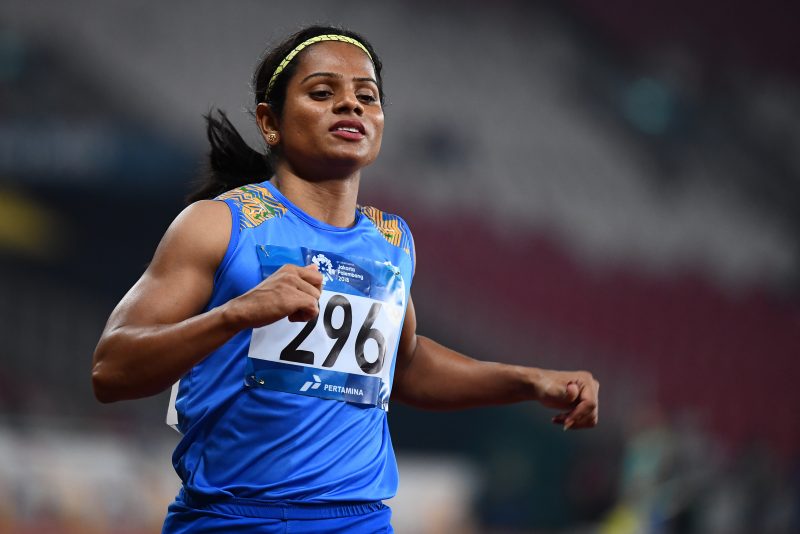India gender-row sprinter Chand says she is gay
Chand said that a recent Supreme Court judgement decriminalising gay sex had given her the courage to speak out (Jewel SAMAD)
New Delhi (AFP) – Top Indian sprinter Dutee Chand revealed Sunday that she is gay, becoming the first athlete from the socially conservative country to do so, and adding she feared being ostracised by her family after the admission.
Chand, who was at the centre of a lengthy international gender row, told AFP she had been in a relationship with a 19-year-old woman from her village for four years.
“I am in a same-sex relationship and I don’t think there is anything wrong in it,” the 23-year-old said.
“For the moment my focus will be on my career with the world championships and Olympics coming up.
“In future after the end of my sporting career, if my heart says that I should stay with her then I will.”
The athlete said she feared social ostracism — including at the hands of her family — but added that a recent Supreme Court judgement decriminalising gay sex had given her the courage to speak out.
“Recently my sister said something to my mother that got her against this relationship and she scolded me and threatened to malign me in public,” she said.
Chand, who was born in a poor village in the eastern state of Odisha, was forced to undergo humiliating gender testing as a teenager.
After being diagnosed in 2014 with hyperandrogenism, a condition which produces high male sex hormones, Chand was barred from competing under International Association of Athletics Federation rules.
She took her case to the Court of Arbitration for Sport which ruled in her favour last year, allowing her to compete in the 2018 Asian Games in Jakarta, where she won silver medals in the 100m and 200m women’s races.
Social media users lavished praise on the athlete following her announcement on Sunday, with many singling out her bravery.
“It takes tremendous strength to come out in public. More strength to you #DuteeChand! You are and will always be a champion,” one user said on Twitter.
India’s Supreme Court scrapped a colonial-era ban on homosexuality in September, ruling that it was against the constitution. The 1861 law was often used to harass the country’s gay community.
Disclaimer: Validity of the above story is for 7 Days from original date of publishing. Source: AFP.


